When working with wonderful library Rasa Open Source it is rather difficult to create complex stories, especially for people who are not familiar with YAML / Markdown.
This project is a small tool, which helps to make complex stories with lots of negative paths faster.
The goal of this project is to help non-technical stuff edit bot's behaviour easily.
Install package using pip: pip install rasa-storyteller and launch rasa-storyteller
Let's start a new RASA project in a usual way:
$ rasa init
Welcome to Rasa! 🤖
To get started quickly, an initial project will be created.
If you need some help, check out the documentation at https://rasa.com/docs/rasa.
Now let's start! 👇🏽
? Please enter a path where the project will be created [default: current directory] .
Created project directory at '/home/user/rasa-project'.
Finished creating project structure.
? Do you want to train an initial model? 💪🏽 No
No problem 👍🏼. You can also train a model later by going to the project directory and running 'rasa train'.
After that we should go to the directory with our new project and find three files: domain.yml, data/nlu.md, stories.md.
Launch our utility and locate those files in the start window:
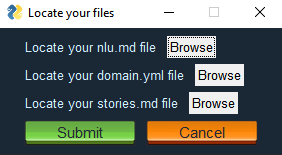
After you load those files a main window with three tabs opens, they are:
-
intents:
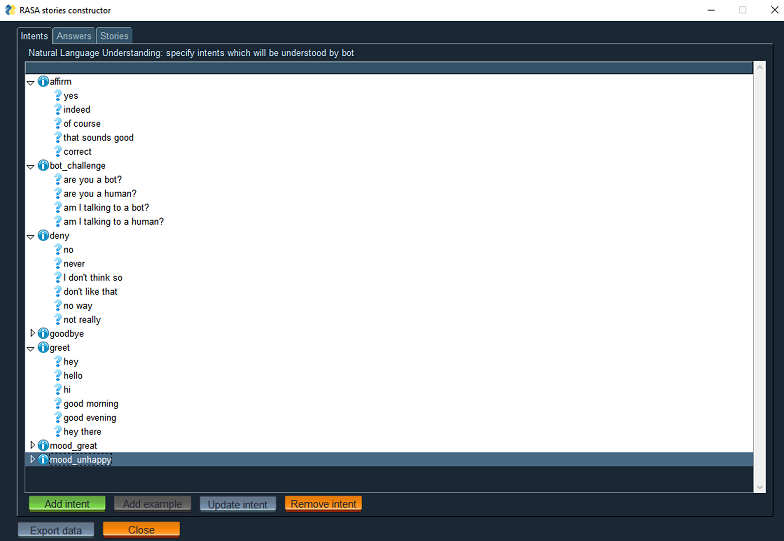
You can easily add new intents or new nlu examples, update or remove existing intents in this window. -
responses:
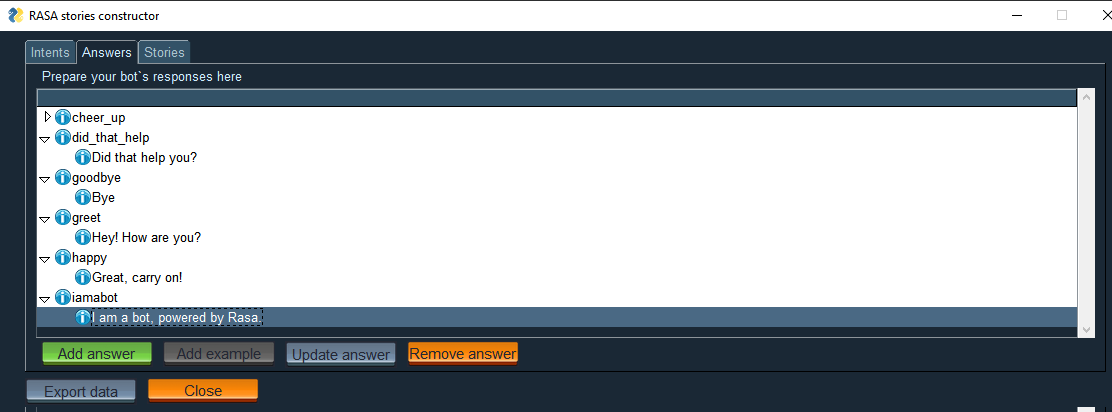
Using this window you can do CRUD operations with responses. -
stories:
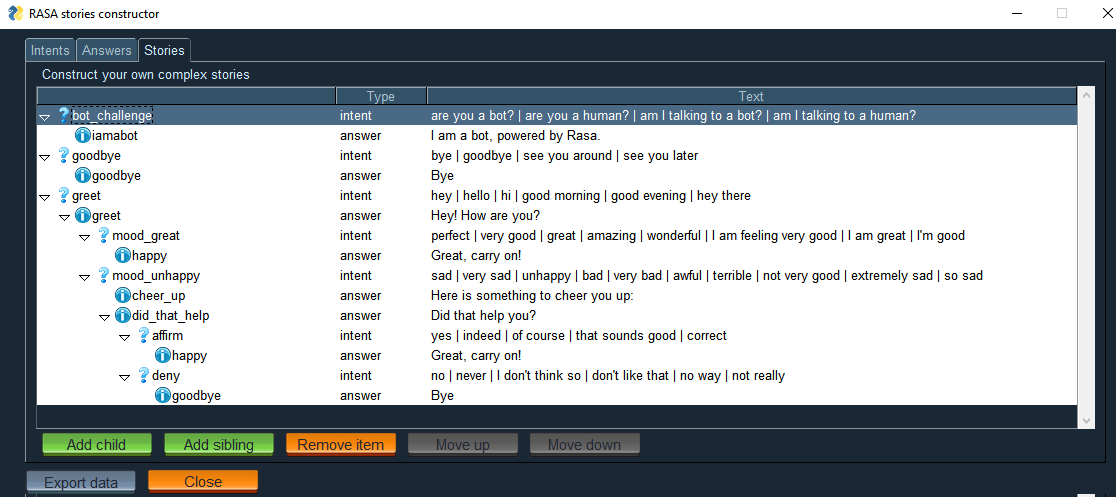
The most interesting tab: here stories are presented as trees. You can link your intents with answers or even create new intent/response in-place using right button menu.
When you have created some story with complex logic and multiple branchings like this:
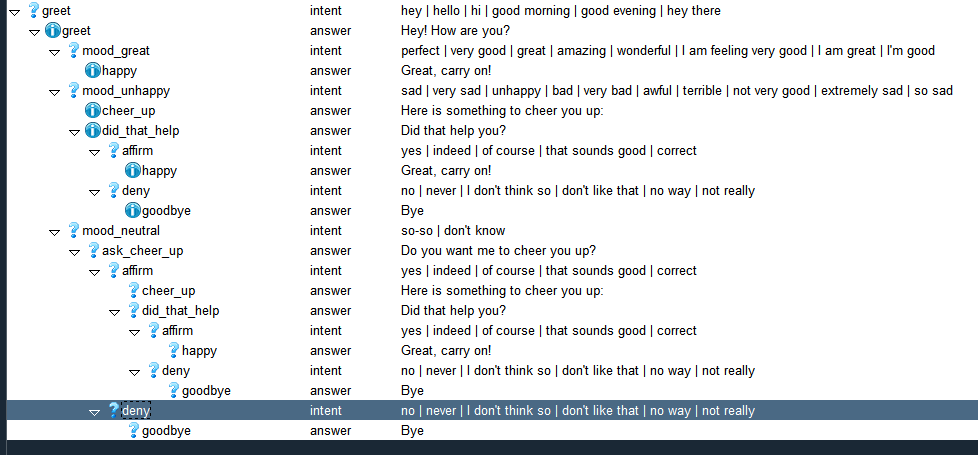
Just press "export" button at the bottom of the window and domain.yml, data/nlu.md, stories.md will be generated in <your_working_directory>/export/.
They will be suffixed with current timestamp so you can push "export" multiple times while editing to store different versions.
The stories generated from image above will look like this:
## greet-mood_great
* greet
- utter_greet
* mood_great
- utter_happy
## greet-mood_unhappy-affirm
* greet
- utter_greet
* mood_unhappy
- utter_cheer_up
- utter_did_that_help
* affirm
- utter_happy
## greet-mood_unhappy-deny
* greet
- utter_greet
* mood_unhappy
- utter_cheer_up
- utter_did_that_help
* deny
- utter_goodbye
## greet-mood_neutral-deny
* greet
- utter_greet
* mood_neutral
- utter_ask_cheer_up
* deny
- utter_goodbye
## greet-mood_neutral-affirm-affirm
* greet
- utter_greet
* mood_neutral
- utter_ask_cheer_up
* affirm
- utter_cheer_up
- utter_did_that_help
* affirm
- utter_happy
## greet-mood_neutral-affirm-deny
* greet
- utter_greet
* mood_neutral
- utter_ask_cheer_up
* affirm
- utter_cheer_up
- utter_did_that_help
* deny
- utter_goodbye